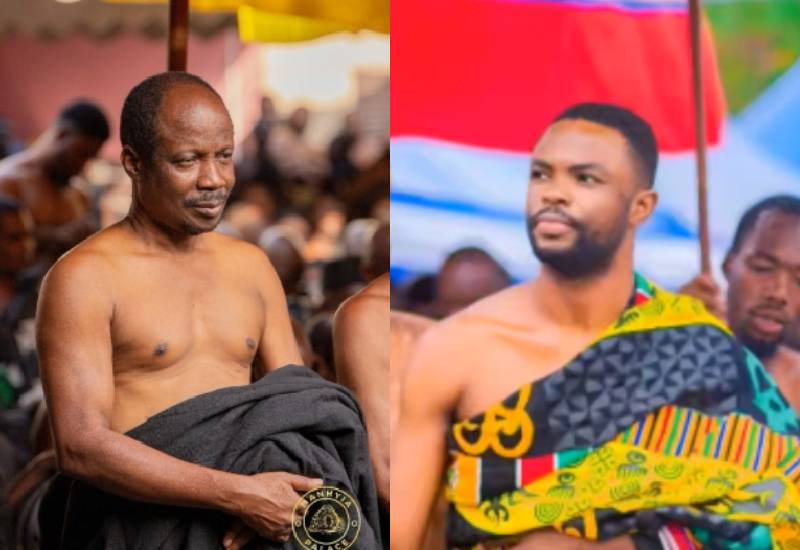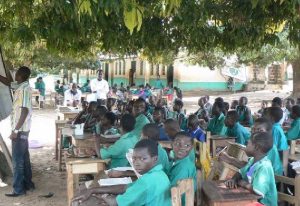Background of Sampa Chieftaincy
Sampa, a town in the Bono Region, has found itself at the center of a chieftaincy dispute that has implications not only for the local community but also for regional stability and the historical ties between the Sampa ethnic group and the Ashanti Kingdom. Chieftaincy disputes in Ghana have a long-standing history, often rooted in traditional customs, legacy, and political influence.
Historically, Sampa was under the jurisdiction of the Ashanti Kingdom. The town has a significant population that is largely influenced by the rich traditions of the Ashanti culture. However, the specific dynamics of the Sampa chieftaincy have evolved over time, leading to the recent unrest.
Involvement of Otumfuo Osei Tutu II
Otumfuo Osei Tutu II, the Asantehene (king of the Ashanti people), plays a pivotal role in the chieftaincy affairs in the region, including Sampa. His influence is paramount, as he oversees traditional authority and seeks to maintain peace and order within the Ashanti Kingdom and its surrounding territories. However, his efforts to mediate disputes can often be met with resistance from local factions, creating tensions that can escalate into violence.
Relationship Between Sampa and the Ashantis
Sampa is historically linked to the Ashanti Kingdom; however, it is not a part of the Ashanti region as defined today. The relationship is characterized by a blend of cultural heritage and traditional governance. While the Ashanti Empire helped shape the history of Sampa, local factions have since sought to assert their own authority and autonomy, leading to the current confrontations. Traditional leadership structures in Sampa must balance their allegiance to the Ashanti tradition while also addressing local interests.
Current Clashes and Factions
Recently, Sampa has witnessed violent clashes between factions, each claiming legitimacy over chieftaincy. Reports indicate that one faction is associated with individuals in the judicial system, including a court of appeal justice, raising concerns about the impartiality of local governance. The rivalry appears to be fueled by both traditional claims and political ambitions, as different groups vie for control and influence over resources.
These conflicts have resulted in injuries and the destruction of property, creating an atmosphere of fear and uncertainty in Sampa. Local leaders, including the Dormaahene, have been accused by some residents of failing to manage the tensions effectively, prompting speculation about whether he is playing a role—either directly or indirectly—in the ongoing dispute. Critics argue that he should take a more proactive stance in maintaining peace in the community.
Consequences of the Brouhaha
The ongoing chieftaincy dispute has significant consequences for the socio-economic stability of Sampa. Local businesses are impacted as residents are hesitant to engage in economic activities due to fears of violence. Moreover, the chieftaincy crisis threatens to disrupt educational services, health facilities, and public services, as residents focus on the conflict rather than community development.
Vox Pop: Local Perspectives on the Crisis
An Ashantibiz news correspondent conducted a series of interviews with residents in Sampa to gather their opinions on the current situation and its potential consequences:
- Kwesi Owusu, a local trader: “Our lives have been disrupted. We cannot go about our businesses, and families are scared to send their children to school. The leaders need to resolve this quickly.”
- Ama Nkrumah, a teacher: “Education is suffering because of this. Children are afraid, and parents are worried about their safety. We need peace for the future of our children.”
- Abena Afriyie, a resident: “I feel that both sides have a point. But they need to sit down and talk instead of fighting. The traditional council must lead the way.”
- Kofi Mensah, a youth leader: “We love our traditions, but they should not lead us to violence. The elders must find a solution and bring unity back to Sampa.”
The resounding message from the community is a call for peace and dialogue to restore stability in Sampa. The dire need for local leadership to prioritize community welfare over personal ambitions is clear, as divisions only lead to more suffering.
As Sampa grapples with its chieftaincy crises, the presence of external influences, historical bonds with the Ashanti Kingdom, and the urgent call for community unity mark a complex landscape. The situation remains fluid, and the hope is for a resolution that prioritizes peace and fosters a stronger future for the residents of Sampa.
Godwin Owusu Frimpong




